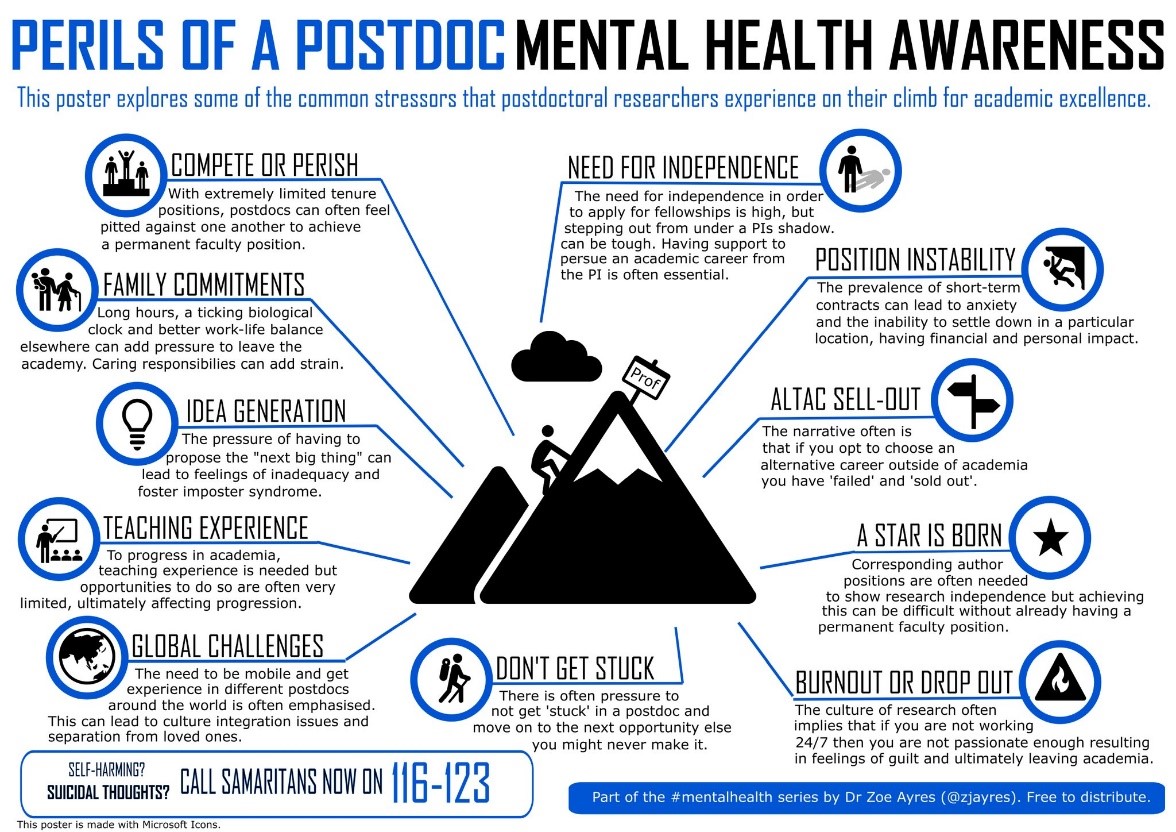The importance of mental health for research staff during the COVID-19 pandemic.
We’re all aware of the impact COVID-19 has had on mental health. Research only staff (e.g., post-docs, research assistants) are a group who may experience unique challenges that may place them at particularly at-risk for mental health difficulties. Research only staff face numerous challenges at the best of times, including the uncertainty of fixed-term contracts and the need to establish independence.

COVID-19 has brought new challenges for us all. Research staff may feel particularly isolated if living away from loved ones and they aren’t able to/feel uncomfortable returning to campus to work.
What resources are available to support ECRs mental health?
University of Birmingham
There are a number of resources available for mental wellbeing.
External resources
There are also really helpful external resources, such as:
The SPRINT project resources 
At the SPRINT project, based in the School of Sport, Exercise and Rehabilitation Sciences, we are interested in applying techniques derived from sports psychology to novel contexts. As a response to COVID-19, we have developed interactive, online resources to help you take ownership over your own wellbeing.
You can also visit our blog page where we regularly discuss these topics.
- Goal setting
Use different tools and resources to set personal goals that can help you take progressive steps to achieve your ambitions.
- Strengths profiling
Identify your personal strengths, think about those you'd like to build upon and consider how they can benefit both you and those around you.
- Emotional awareness
Build your awareness of different emotions and begin to understand how we can manage them.
- If-Then planning
Make a plan for how to deal with stressful situations that may arise in the future. By practising how to plan effectively, you can learn new coping strategies, work towards achieving your goals and improve your overall resilience.
- Coping: part 1 and part 2
Develop effective strategies for coping with stressful situations. These pages will help you to identify the advantages and disadvantages of different coping strategies and practice the technique of reframing to develop a more positive mindset.
- Grounding techniques
Grounding techniques help bring us back to the present moment and can help reduce feelings of anxiety and being overwhelmed. We have created a variety of infographics so pick whichever one works for you.
- Dream Team
Identify and reflect on different types of social support and how they can benefit you.
For more information on The SPRINT project resources, contact Dr Mary Quinton via email or Twitter.
A copy of the information on this webpage can be downloaded as a PDF.